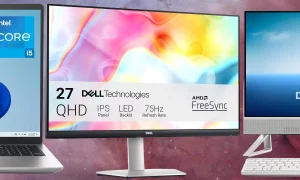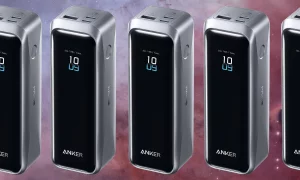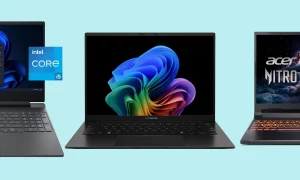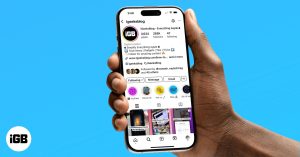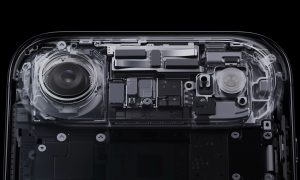Microsoft Announces Windows 10 S, New Surface Laptop
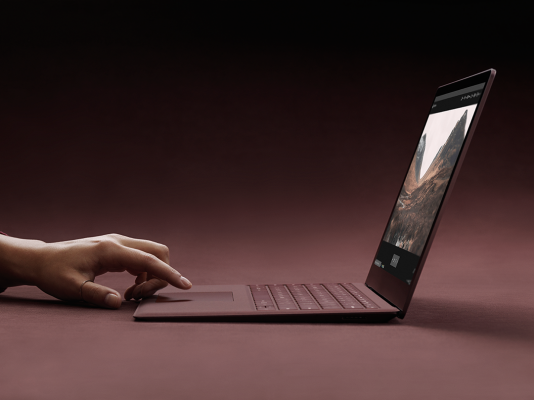
Microsoft announced Windows 10 S, a version of Windows 10 that can only run apps downloaded from the Windows Store, and a Surface Laptop that will rely on the new operating system. The company also said that laptops running Windows 10 S will debut this Summer with a starting price of $189–a move that’s clearly meant to help Microsoft combat Google’s efforts to capture the education market with its low-priced Chromebooks.
Windows 10 S(tore)
Microsoft said in a blog post that Windows 10 S was designed with students and teachers in mind. It’s supposed to be “streamlined for simplicity, security, and superior performance” when compared to Windows 10 Home and Windows 10 Pro. Those goals are mostly achieved with the simple decision to restrict software to what’s available from the Windows Store, where apps are vetted by Microsoft and run in their own sandboxes.
That restriction could be a deal-breaker for some people. Notable omissions from the Windows Store include alternative browsers like Chrome and Firefox, game launchers such as Steam and GOG Galaxy, and productivity-related apps like the full Adobe Creative Cloud suite. Right now that list also includes the full Microsoft Office suite, but the company said today that it plans to bring all of those apps into the Windows Store.
Windows 10 S is Microsoft’s bet that more people care about the price of their laptop than their inability to install software from outside the Windows Store. For anyone who wants to have their cake and eat it too, as it were, the company will also let them upgrade their devices to Windows 10 Pro. The company didn’t say if that upgrade would cost the full $200 it normally charges for a Windows 10 Pro license.
Microsoft could also use Windows 10 S to convince more developers to bring their software to the Windows Store. The pressure is now on browser makers like Google and Mozilla to bring Chrome and Firefox, respectively, to Microsoft’s app marketplace. If they don’t, Windows 10 S users will have more reason than ever to use Edge. (Not that making it harder to use alternative browsers has worked out for Microsoft before.)
It’s worth noting that Windows 10 S does have some features Windows 10 Home does not. These include BitLocker security features, Remote Desktop controls, and other features that will make it easier for administrators to keep tabs on hundreds of Windows 10 S laptops. Windows 10 S and Windows 10 Pro overlap quite a bit–the main differences are the Windows Store restriction and the ability to join a corporate network.
Surface Laptop
Microsoft’s push to create its own hardware continued with the new Surface Laptop. It’s basically the next logical step for the company: It made the Surface and Surface Pro as tablets which also served as laptops, pushed the Surface Book closer towards the laptop category while retaining the tablet functions, and finished the chain with the Surface Laptop. The new device also complements the Surface Studio desktop from 2016.
Surface Laptop boasts a 14-hour battery life, an Alcantara-covered keyboard, and Intel 7th Generation (Kaby Lake) Core i5 or i7 processors. Microsoft said the laptop’s 13.5″ PixelSense Display is “the thinnest LCD touch screen display on any laptop,” and the rest of the laptop follows suit, as it weighs just 2.76lbs and is 14.47mm thick at its thickest point. (Let’s not question the jumps between imperial and metric units, eh?)
The Surface Laptop will start at $999 when it debuts on June 15. Microsoft didn’t offer much information about its specs–all we know is that can be configured with either an Intel Core i5 or i7 processor; 4, 8, or 16GB of memory; 128, 256, or 512GB of SSD storage; and various color options. All configurations use the processor’s integrated graphics, so anyone looking for a gaming machine should probably turn elsewhere.
Another outlet, Laptop Mag, which is also owned by Tom’s Hardware’s parent company, grabbed some hands-on video with the new Surface
What Chromebooks?
The last of Microsoft’s announcements focused on Windows 10 S laptops made by other manufacturers. The company said Acer, Asus, Dell, Fujitsu, HP, Samsung, and Toshiba all “offer a range of new Windows 10 PCs for Education today” and will “offer a range of Windows 10 S devices—from powerful and affordable Windows Ink and touch PCs to beautiful premium devices” in the “coming months.”
This means Windows 10 S isn’t only supposed to appeal to people on tight budgets. The gap between $189 and $999 is big enough to accommodate everything but high-end laptops, and chances are that most people shopping for anything higher than around $1,000 won’t be satisfied by the operating system’s restrictions. Microsoft has two obvious targets: Chromebooks on the low end and MacBooks on the high end.
Surface Laptop will handle the latter. The former’s aided by Microsoft’s offers to students and teachers, as outlined in its blog post:
- New Windows 10 education PCs starting at $189
- Free one-year subscription to Minecraft: Education Edition for new Windows 10 education PCs
- Free Windows 10 S for all schools on their current Windows Pro PC
- Free Microsoft Office 365 for Education with Microsoft Teams
- Free trial of Microsoft Intune for Education
That compares favorably to what Google offers education customers with Chromebooks. Yet it remains to be seen how these new Windows 10 S laptops will fare. We don’t know how they’ll perform, how they’ll reach that $189 price floor, or how keen people will be to restrict themselves to the Windows Store. Chromebooks are restricted to web apps, sure, but some now offer access toAndroid apps from the Google Play Store.
We’ll find out more about Windows 10 S, the Surface Laptop, and where other manufacturers will focus with their own Windows 10 S devices as each starts to debut over the next couple of months.




